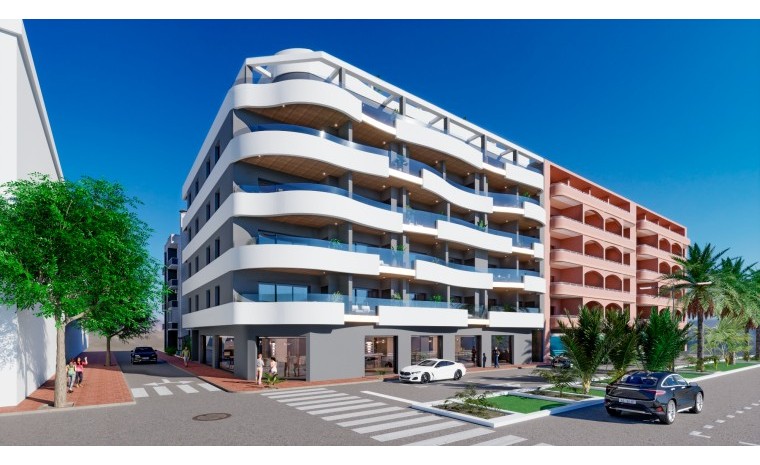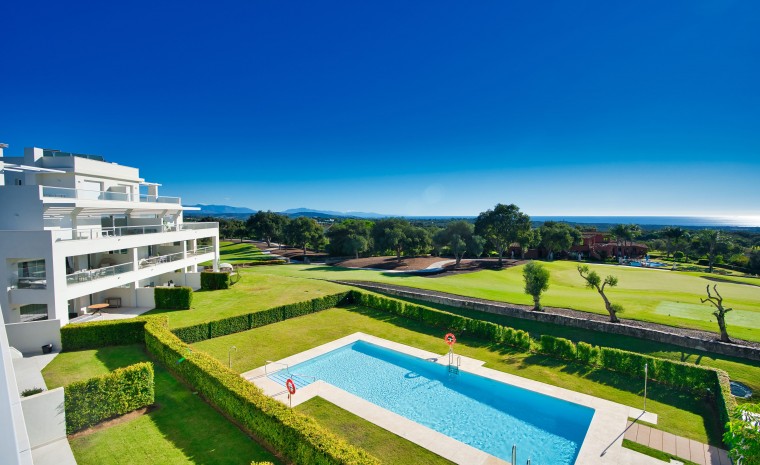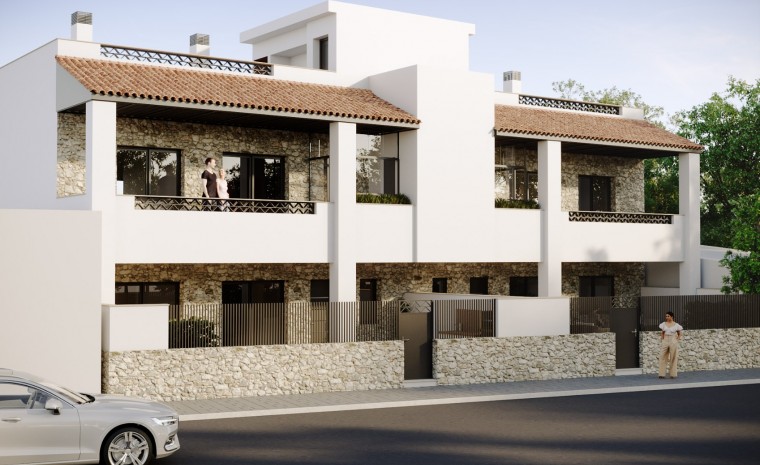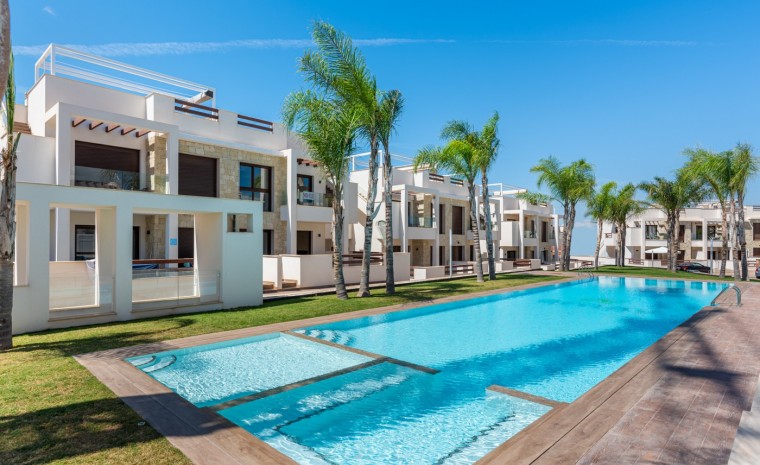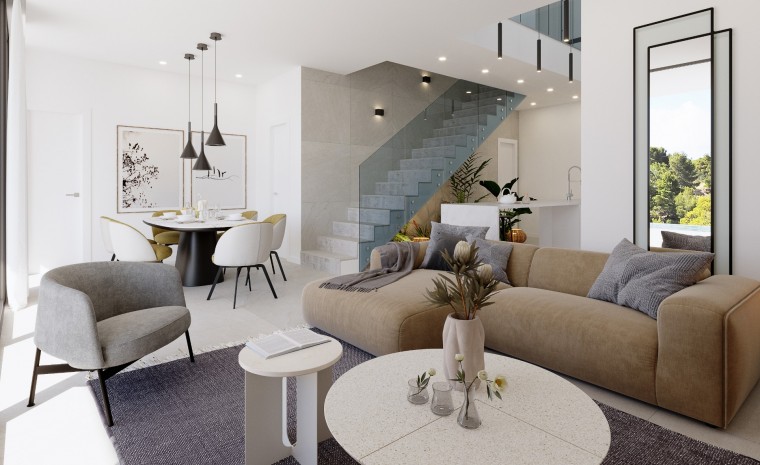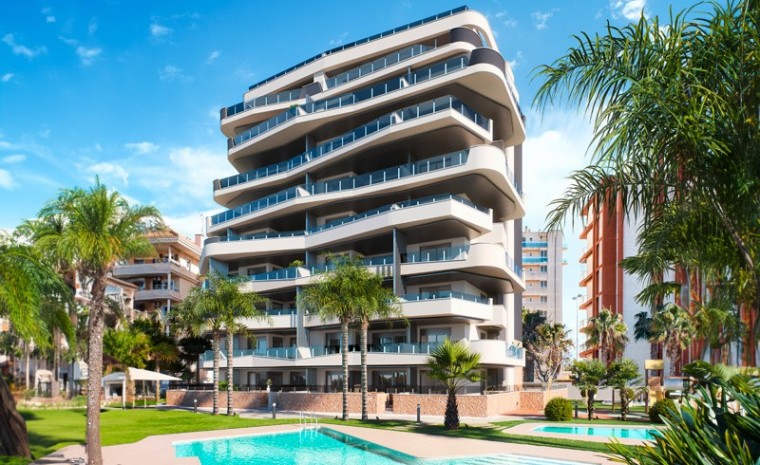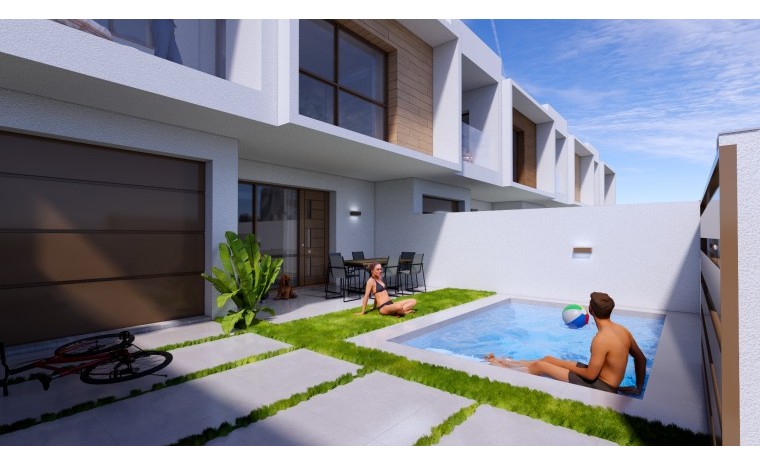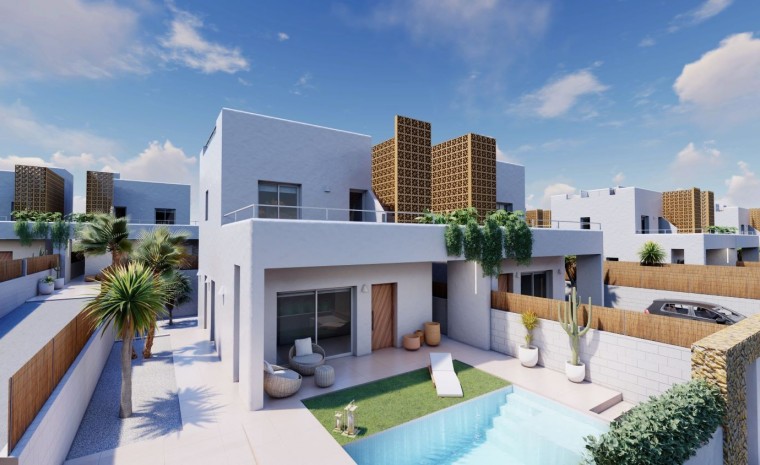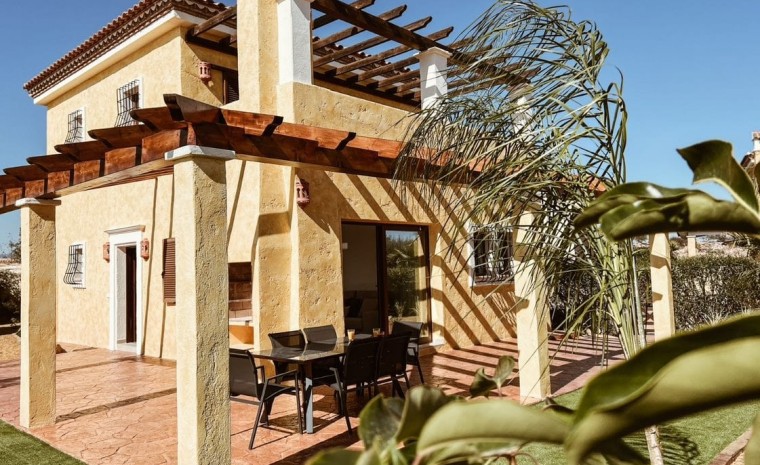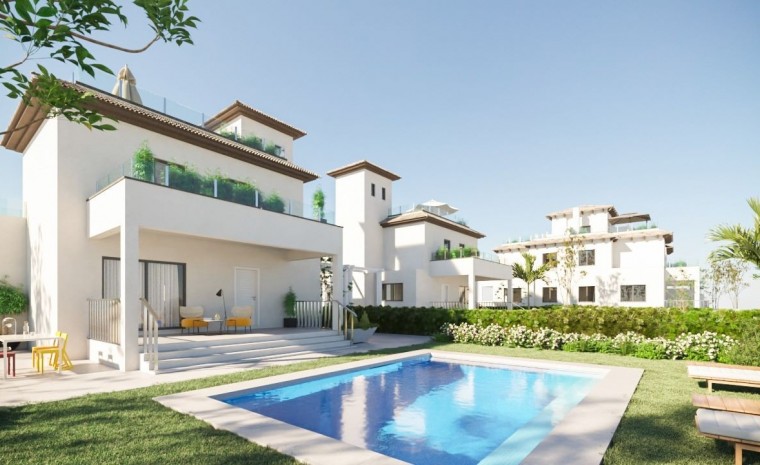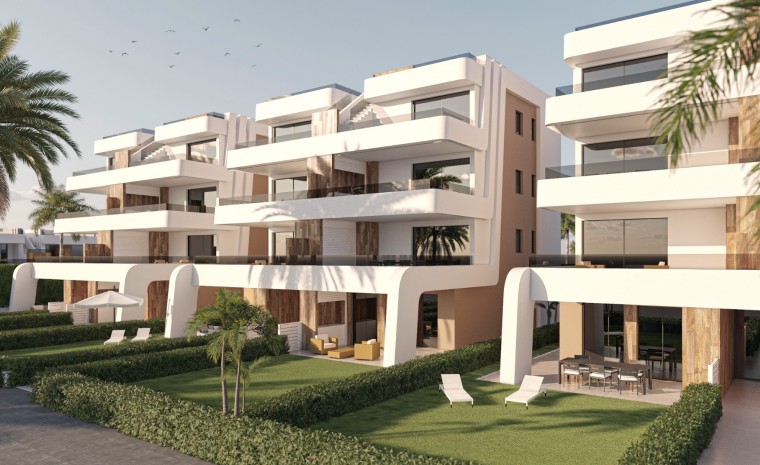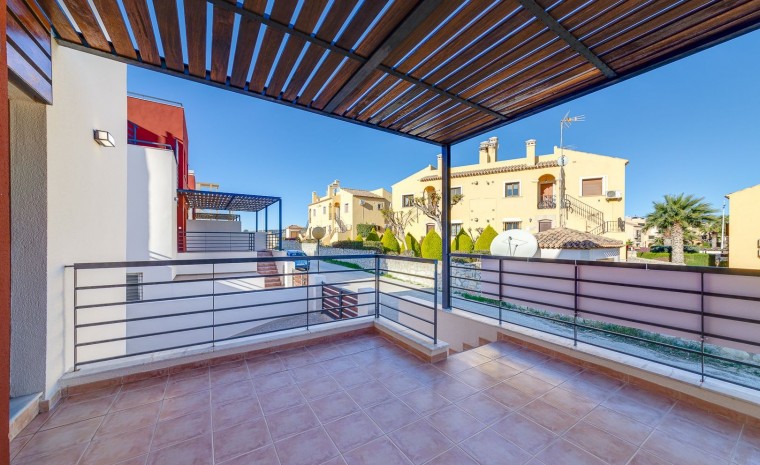Buying a property in Spain
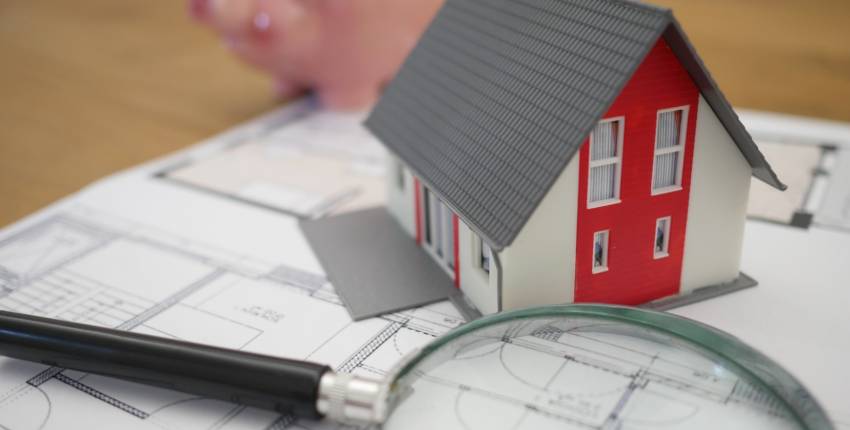
Contents:
- How do you get started?
- Choosing your property
- Mortgages
- How much should buying a house in Spain cost?
- Currency exchange if you do not have euros
- How to go about visiting properties
- What you need to be able to buy a property in Spain
- The Solicitor
- What to do once you have chosen your dream home
- Checking out the property
- Making sure your paperwork is in order
- After the sale
- Summary
Buying a property in Spain is an aspiration for many. The climate and lifestyle are just two of the reasons that every year people continue to buy Spanish property.
It is true that there have been some dips in confidence. During the boom years, not everyone behaved as they should and unfortunately, there have been people who took advantage of foreigners’ eagerness to buy. Since then, procedures are tighter, and people are wiser. The recession weaned away most of those with a less-than-pristine reputation.
This guide is intended for those considering buying a property in Spain. It takes you right through the conveyancing process and informs you about what to expect and what to avoid.
1. How do you get started?
Many people begin their property search as holidaymakers themselves. Perhaps they have visited a part of Spain a few times and have grown to love it. Perhaps they have friends or relatives who already live there.
If this is the case for you, then you probably already have a good idea about where to start looking. With the internet there is no end of online methods for searching for a property. Of course, you will want to back this online search with on-the-ground research. If you already have family or friends in Spain, then you have an excellent starting point for finding the area and property that might be right for you.
In other cases there may be no tie to a particular area but a general wish to buy property somewhere warm and sunny. Spain, remains a popular destination. For those living in Europe, it is easily accessible and the weather is predictable. It’s a large country and there is no shortage of variation in landscape and leisure activities. Research is vital. Reading books and searching the internet will give you some ideas. However, it is also beneficial if you can find someone who has made a similar decision and can give you some advice. The team at Futurcasa Real Estate is more than happy to give you honest advice and information about the different areas, so please do not hesitate to contact us if you have any questions.
2. Choosing your property
Location is a very important factor when you make your choice. You should ask yourself:
• What is my real reason for buying a house in Spain and how does this influence my choice of location?
• What are my main priorities in terms of location?
• Do I want to live out in the country, by the beach, close to a golf course, in an urbanisation or in a town, for example?
• Is it important that I live amongst Spanish speakers, or should I look in more international/touristic areas?
• How might my needs change in ten years’ time?
• What facilities do I need to be close to for health or other practical reasons?
• Will I have a car when I’m in Spain, or do I need to be walking distance to amenities?
Once you have identified approximately the area you think you would like to live in then you can focus on properties.
You will need to make some decisions about:
• Whether you prefer new or rebuild
• Whether you prefer a house or apartment
• The outdoor facilities you require (garden, pool, solarium etc)
Of course, there will also be other issues such as size, number of storeys and the aspect of the property. A lot will depend upon your short-term and long-term intentions. If you are a non-resident then having lots of outside space that needs maintenance is a consideration; a private swimming pool requires care throughout the year.
However, if you are planning to be a resident either now or in the future then you might need more places to store belongings, and a large living space, and perhaps even a garage or carport might be important.
You will want to consider the immediate environment you wish to live in. Do you like to be in a busy, possibly noisy, environment where there is always someone to pass the time of day with? Or do you prefer to be undisturbed and more isolated?
3. Mortgages
It is important to work out exactly how much you can afford and have an idea of what you might be able to purchase in the area that you are considering and that you know what your limit is. If you need a mortgage or a loan, it would be a good idea to look into that early on to see how much you can get, to give you an idea of what budget you have and so as to know which properties to look at. Keep in mind that if you need a mortgage, if you choose a new build property, you can only take out a mortgage on a property that has already been finished, so if you wish to buy off plan, you would have to have another property elsewhere that you could mortgage, or you could obtain a mortgage for the final payment when the property is finished.
Obtaining a mortgage
You can apply for a mortgage in Spain in much the same way as you would in most other countries. However, banks are no longer as keen to lend as they once were. You will be expected to be able to contribute a large deposit and they will want to see proof of income to ensure that you are in a position to pay your mortgage now and in the future.
A mortgage cannot be taken out for longer than 30 years and must be repaid by retirement age. New legislation protects the borrower and the lender. The conditions of the mortgage have to be explained to the borrower by a Notary a few days prior to signing the mortgage deed. The borrower signs a document confirming they accept the terms and conditions.
If you are considering taking out a mortgage you should:
• Decide how much to ask for – you must consider all the expenses involved in taking out the mortgage as well as how much you can afford monthly from your income for the interest
• Compare quotes from different mortgage providers
• Make sure you are familiar with all the terms and conditions of the mortgage provider you’ve chosen
• Ask for a firm offer that comes with all the details and the complete contract.
The next steps include:
• After you have accepted the mortgage conditions before the Notary the mortgage deed will be prepared
• The signing of the Mortgage Deed will take place at the same time as the signing of the Title Deed
• After the signing, the Notary will send an electronic version of the Title Deed and the Mortgage Deed to the Land Registry followed by the official hard copy documents.
If you do find at some point that you are able to pay off your mortgage, then just be aware that you will need to inform the Land Registry too. In order to make sure that the records are in order, a representative from your mortgage holding bank needs to sign the Mortgage Cancellation Deed at the Notary Office. This can then be sent to the Land Registry.
As well as the additional cost you will incur by paying your mortgage there will also be an administrative cost applied by the mortgage lender. Make sure you are clear about how much this will be as it can amount to around 2% of the mortgage itself.
Required documents to formalise a mortgage:
• Employment stability: which determines the possibility of going into debt for a long period of time.
• Annual income: payslips or the equivalent.
• Financial background: the client´s financial records are considered, which would reveal any previous outstanding payments, late payments, etc. Financial institutions will request a bank certificate from the client which provides information on the client´s financial background and level of debt accrued. This allows them to determine whether the client is capable of increasing his level of debt with respect to income.
• Wealth: Other properties owned in addition to that which is to be purchased.
• Guarantors: These are other people who guarantee the repayment of the mortgage.
• Additional guarantees: savings plans, pension plans, investment funds, etc.
Costs of taking out a mortgage:
• Assessment costs
• Commission fees for setting up the mortgage
• Commission fees for cancelling the mortgage
• Compulsory insurance: as prescribed by law, it is only compulsory to insure against the risk of fire, but in practice, it is also required to have household insurance, and in some cases, payment protection insurance.
• Other facilities: bank cards, standing order charges, etc.
At Futurcasa Real Estate, we work with well-reputed banks that can help you should you need a mortgage here in Spain.
4. How much should buying a house in Spain cost?
It is important from the outset that you are clear about what your budget should be for buying a property in Spain. Of course, it’s not just the cost of the property itself. There are a number of legal and tax obligations that you must meet to ensure that your purchase is problem-free in the future.
Purchase costs:
Purchasing a property does not only involve the cost of the house itself. As in your home country, there are a number of supplementary costs that you must budget for. We advise that you should add around 14% to the price of the property as a rough guide. This 14% is made up of:
External costs
The largest external costs are for the Spanish Notary and the Spanish Land Registry.
The scale of Notary charges is fixed by law and the actual amount to be paid will depend on the extent of the legal provisions of the Title Deed and the value of the property. As a guide, we would say that charges normally start at 800 Euros.
The Spanish Land Registry (Registro de la Propiedad) is an official registry that protects the rights of the owners of Spanish property. The title deed must be inscribed in the local land registry. The fee depends on the value of the property but normally starts at around 400 Euros.
There are other additional expenses that apply in some cases depending on individual circumstances. For example, if you have never had a fiscal interest in Spain before, you will need an NIE number before you can open a bank account or purchase your property.
You will also need a power of attorney if you are unable to be here in person and need to appoint an adviser you trust in Spain to act on your behalf. This is usually your solicitor.
Taxes
In addition to the external expenses, there are also taxes to pay. The taxes are dependent on whether the property is new or resale.
| PROPERTY TAX TABLE | |
| Type of property | Tax payable |
| New build | IVA (VAT) 10% Stamp duty (AJD) 1.5%* in the Valencia Community |
| Resale | ITP (transfer tax) 10%* in the Valencia Community |
If a resale property is sold by a non-resident, it is usual practice for 3% of the purchase price to be retained by the lawyer acting on behalf of the buyer. This is a legal requirement and is paid to the Spanish tax authority on account of capital gains tax. If the seller has not made a profit, it can be claimed back.
Legal fees for the purchasing process
You will also need to account for the cost of the legal fees for the purchasing process. It is important that you ensure that your interests are represented. An independent solicitor will give you advice and the reassurance that legalities are checked on your behalf during the buying process. Make sure that whomever you entrust with this very important transaction places your needs first and does not have a conflict of interests with other parties. It is important to be able to communicate clearly with your solicitor who will ideally be a native language speaker. He/ she should be part of a respected and trusted firm, specialising in Spanish property law. You should be provided with a personalised quote with no obligation.
If you purchase a new build property, there will also be costs for activating water and electricity (and gas in some cases), the price of this depends on the location of the property. For a secondhand property, you will need to pay to change the ownership of the water, electricity and gas. The solicitors will deal with the changeovers for you.
In addition, you need to allow for more if you need to furnish your home or wish to make any changes to the property.
Another important consideration is how much it will take to maintain your property. Once you are the proud owner of a home in Spain, there will continue to be annual outgoings, make sure that you make allowances for these.
Annual costs:
Ibi/Suma (Ownership tax):
This is a council tax calculated based on the value which the Local Authority attributes to the property (rateable value) with each Local Authority being free to apply its own coefficient. This tax is payable by the person who was registered as the proprietor from 1st January of the relevant year.
Income tax for non-residents:
Non-residents must pay this tax as owners of urban property located in the Spanish territory. The taxable income to be declared is the sum total after applying the property´s rateable value (indicated on the receipt of payment of the Property Ownership Tax), being a percentage that is set at a standard rate of 2%; In relation to properties for which the rateable values have been reviewed, modified or fixed by a collective valuation process in force during the relevant tax year or the previous ten tax years, this will be set at a rate of 1.1%.
It is understood that the taxable sum is payable within one calendar year, such that if the title of ownership to the property is not held throughout one year, it will be paid pro rata for the days in which you were the property owner. On the resulting sum payable, a tax rate of 19% will be applied to residents of EU member states, Island and Norway, and a rate of 24% in all other cases. The due date for payment is 31st December of each year and the Self-Assessment tax return (Form 210) must be filed in the calendar year from this date. The Self-Assessment tax return should be sent to the housing department of the Local Authority where the property is located. Your tax representative or solicitor can help you with this.
EXAMPLE:
A property has a rateable value of € 54,000 assuming it had been reviewed in the previous 10 years. The property was bought by an EU resident on 30/09/2022. On 31st December 2022, the tax payable would be calculated as follows: Tax base: € 54,000 X 1.1% X (92/365 days) = € 149.72.
Amount payable: 19% X €149.72 = € 28.45 to be paid during the calendar year 2022.
Community fees:
To cover the costs of swimming pool maintenance, gardens, communal electricity and water bills, lifts etc.
Water, electricity, and gas
Assuming that you have done your calculations and are confident that owning a property in Spain is well within your budget, then you can take the next step forward.
5. Currency exchange if you do not have euros
Moving money between countries can be costly. When you buy a house and transfer your money you can find that up to 3% of the total sale price is lost.
For example, when transferring money, the bank will decide exactly when to move it and generally this will be at the exchange rate that is most advantageous for them rather than for you. Using a SWIFT transaction means that another charge of around 0.6% will be levied.
An alternative is using a currency exchange company that does not charge excessive amounts. They are able to do this because they keep funds in both countries. So, you can deposit your money in an account in your home country and the money is then taken out of an account in Spain. It isn’t transferred because the money is already there. This means that it can be done free of charge – depending on the company you deal with. Futurcasa Real Estate works with a well-known trustworthy currency exchange company, please ask us for more information.
6. How to go about visiting properties
You can contact us at Futurcasa Real Estate (info@futurcasarealestate.com) to arrange visits for whenever it suits you best. If you already have a holiday planned to come here, then you can arrange the viewings during that time or we can also do virtual visits where we will call you by video call and show you the properties, area, or anything that you would like to see, all from the comfort of your own home. We are happy to do all the visits necessary (virtual or presential) until you are totally happy with your decision. We also offer Inspection visits, where you can come to Spain whenever it is best for you, for 2 or 3 days (the time needed to see the properties you would like to see with us and the area), and should you buy we will reimburse you up to a certain amount to cover the journey here and hotel (please ask us for more detailed information, we would need to be presented with the receipts/proofs of payment).
7. What you need to be able to buy a property in Spain
You will need:
A valid passport or ID card
A foreigners Identification Number (NIE) which you can get from the Spanish Consulate / Embassy or with the help of a solicitor in Spain.
A Spanish bank account
You will also need to facilitate the bank account details of origin from where the payments will be made.
We advise you to appoint a solicitor to help you with the entire purchase process.
8. The Solicitor
It is very important that the legalities are completed by a competent solicitor. You should have your own representative who is looking after your interests when the contract is exchanged. Choose a solicitor who you can communicate with easily in your native language but who is also a specialist in Spanish property law.
Your solicitor will ensure that the estate agent is properly authorised to act on behalf of the client and that the contract protects your rights and your money. The solicitor prepares for the signing of the Title Deed, represents you at the Notary office and registers the property with the Spanish Land Registry. They can also help with the translations. Being able to communicate is vital. Unless you are fluent in Spanish, you will need to establish that there are people in the organisation who speak your language either as a native or very close to it.
9. What to do once you have chosen your dream home
You will need to sign the reservation contract when you pay the deposit for the property (the deposit is usually non-refundable should you change your mind). If you buy a new property, normally in 1 month after reserving, you will make a second payment and sign the purchase-sale contract. This depends on the promotor you buy from. Each one has its own payment methods. Some require several payments to be made up to the final payment on the day of the signing of the Title Deeds at the notary. Make sure you are clear on the payment methods and be sure that you will be able to pay each payment at its due time to avoid any problems.
Once you have reserved your new home, you will need to ask your solicitor to start checking everything:
10. Checking out the property
Usually this is no different to the process you would expect to follow in your home country. However, the fact that you are abroad and unfamiliar with procedures means that you need to use a solicitor to carry out the checks properly for your own peace of mind.
Property Checks
There are a number of checks that need to be carried out in order to ensure that the property you wish to purchase really is the good buy it seems. These can be divided into four types:
• Legal status of the property
• Utilities and taxes check
• Legal status of home improvements
• Architect’s inspection of the property
Legal status of the property
Your solicitor should make a thorough search of the Spanish Land Registry to make sure that everything is in order. This will include checks against the nota simple. The nota simple is an extract from the Land Registry that gives details of any mortgages and debts held against the property and is essential information for anyone considering a purchase. It includes:
• A description of the property – including several physical features such as its boundaries, floors, surface area
• If it is part of a community of owners
• Who owns it and their identification
• Mortgages and any loans remaining
• Any outstanding taxes or debts held against the property
• If it conflicts with local planning laws
• The construction history of the property
Your solicitor will also request a certificate from the Catastral Registry and will check:
• That the m2 on the Title Deed is correct for the property
• The Catastral reference
• The Catastral plan in order to see whether additional building work has been registered or not
The solicitor will then compare the details on the two registries with the Title Deed to make sure they are consistent.
He/she will check that the certificate of habitation / first occupation licence (formerly: Cédula de habitabilidad, nowadays: Licencia de primera ocupación) or second occupation licence (Licencia de segunda ocupación), if the property is a resale, is in place.
Every new property in Spain must be issued with a occupancy licence (Licencia de Ocupación). This licence is issued by the town hall as an administrative document and shows that both the property as well as its urbanisation are completed and ready for habitation. Only when an urbanisation is totally complete and all the infrastructure is in place, will this licence will be issued.
When you come to sell your home , the new purchaser will want to see that the property was given a occupancy licence. The new owner will need to apply for a new licence themselves, as depending on the area the license needs to be updated in order to contract utilities in the new owner’s name. Without an occupancy licence you won’t be able to complete on a mortgage or take out a new water or electricity contract.
Utilities and taxes check
If there are outstanding payments on utilities the debts must be settled before services can be reconnected or transferred into your name. Outstanding taxes must be paid before you can take ownership of the property. Therefore, it is important that a check is made of:
• Electricity
• Water
• Community fees
• Refuse collection
• Council tax
• Plusvalía tax
Architect’s inspection of the property
It is important that there is a visit to the property by a professional. An architect should visit the house you are buying and check its condition against 200 standards.
This might look like a formidable list of things to do. However, omitting any of these can cause trouble and prevent you from enjoying your home in the future.
Community of owners
It is beneficial to find out if your property is part of a community of owners. The community of owners (comunidad de propietarios) is the legal body responsible for controlling
and maintaining spaces and facilities that are shared by owners.
This might include gardens, communal pools, lighting, drains, stairways, lifts and entrance halls.
In order to maintain these facilities, community fees are collected from each owner and formal meetings are conducted to make decisions about maintenance and other issues that are raised. If, for example you decide that you want to refurbish your property you will need to have permission from the community of owners as well as applying for the necessary licences from the town hall.
A community of owners might employ an “Administrador de Fincas”. The “administrator” can support the community in its official activities and makes the role of the community president easier to fulfil. Although there are formal roles and laws relating to communities, they still operate in different ways and some are more efficient than others. It is worth enquiring if there is one attached to a property you are considering and getting some idea of how well it is run.
The EPC (Energy Performance Certificate)
Every home in Spain that is sold or rented must now have an EPC. The EPC provides a guide for those wishing to purchase a property of how energy efficient it is. The certificate contains an energy rating for your property according to a scale; ‘A’ is the highest level of efficiency and ‘G’ the lowest.
This rating takes into account the level of consumption of electricity, water and gas.
Responsibility for organising an EPC rests with the seller or the builder in the case of a new property.
11. Making sure your paperwork is in order
Your solicitor can not only help to ensure that the correct checks have been made on your property but that your own paperwork is in place too. The key document you will need is the NIE.
The NIE
If you don’t already have an NIE (Número de Identificación de Extranjeros) you will need to obtain one in order to be registered with the Spanish Tax Authorities.
The NIE is an identification number that must be applied for personally at the Foreigner’s Office or National Police Station. Where, appropriate, a residency certificate can be applied for at the same time.
Although the NIE requires a personal application, this can still be acquired without you coming to Spain if this causes difficulties for you. In order to obtain one without travelling you will need a power of attorney.
The Power of Attorney
Obtaining an NIE and the buying process require a number of signatures and appearances at the Spanish Notary. The Notary is a professional within the Spanish law system whose main function is to certify Spanish documents ensuring that private agreements fulfil certain legal criteria. The Spanish notary is involved in legalising contracts and uses a stamp and signature to endorse them.
Depending on where you are living, the requirement to sign in person can present problems and if you are a non-resident it can be particularly difficult to organise. This is where the power of attorney becomes a vital tool in order to secure your new property in Spain.
The power of attorney (Poder Notarial) is a means of enabling the legal process to continue without you being there in person. It allows you to nominate a trusted individual to represent you in certain transactions and is a legal document that must be signed in the presence of a notary.
The good news is that a power of attorney can be obtained either here in Spain or in your home country. So, if you do spot the ideal property on the last day of your holiday it is possible to return home and make the arrangements from there.
Once your representative has the power of attorney then they can continue to put your purchase in motion right through to completion whilst you continue your ordinary business at home.
Signing the Title Deed
Once the necessary checks have been completed then the paper work will be prepared ready for signing. The Title Deed will need to be signed at the Notary. You have the right to choose the notary who you would like to authorise the signing of the Title Deed.
Signing the Title Deed includes:
• Checking the identity of the seller and buyer
• Checking the description of the property
• Highlighting any debts that are held against the property
• Checking that any community fees have been paid
• Requesting proof of payment of the IBI property tax and informing officials of the change of ownership
• Explaining the sharing out of expenses between the two parties
• Managing payment, if it’s requested, of the different expenses that accompany the process
Never sign anything that you don’t understand or that you aren’t completely sure about. Once you have signed the Title Deed, you can’t go back.
When you sign the Title Deed at the Notary’s office you will not be given the original Title Deed to your property but should receive an authorised version known as the Copia Simple.
If you have a mortgage on the property the Title Deed and the Mortgage Deed will be kept with the bank. Once the mortgage is paid then you will be given the both documents.
If you purchase without a mortgage you will receive the Title Deed when you register the property at the Land Registry. Make a note of the notary who signed it so that if you do need a replacement at some point you are able to obtain another copy of the original.
Finally, the property is yours.
12. After the sale
Once the Title Deed has been signed then the property will be registered at the Land Registry and the utility companies should be informed of the change of name.
You will now need to complete your payments by settling with your legal representative. It is important that you ask for an itemised receipt rather than accepting just a total amount. You should be given original invoices for the notary fees, the Land Registry charges and the taxes you have paid. Make sure that you retain all the documents, invoices, receipts and guarantees for future reference.
13. To summarise:
Do your research – find out as much as you can about the area as well as the property. Who lives there? What is it like to live there?
Consider your needs now and in the future. Location is perhaps more important than the specification of the house itself.
Work out your budget. You should allow an additional 14% on top of the cost of the property for conveyancing purposes.
Check that you will be able to maintain the property after you have bought it. You will need to pay taxes, standing fees for utilities, and in some cases, community fees.
Employ a solicitor who will represent your interests – someone with a good reputation.
Make sure you are kept informed throughout the purchasing process. Having a solicitor who you communicate with easily and in your native language is important.
Make sure you are clear about what arrangements you need to make following the sale and what bills you will have to pay. Once the house is yours, your responsibilities don’t stop there.
Enjoy your home!
We hope that you have found this guide useful. In it we have tried to outline as clearly as possible what is involved in purchasing a property in Spain, safely.
We hope that our guide has given you the confidence to buy a home here and take advantage of the range of properties available at affordable prices. There is something to fit everyone’s budget and by following our guidelines you too can look forward to many years enjoying your home in the sun.
This guide has been put together with the help of Ábaco Advisers
Ábaco Advisers is an independent firm of lawyers and legal advisers specialising in Spanish property law and have been helping people to purchase property safely and easily throughout Spain since 1999.
They will provide you with:
• Professional practice backed by more than 20 years of experience
• A wealth of specialist knowledge supplied by over 40 experts in their field, including lawyers, solicitors, economists and tax advisers
• Advice in eight languages: English, Swedish, Norwegian, Russian, German, French, Dutch and Spanish
• The confidence of knowing that they have helped more than 38,000 satisfied clients buy their new home in Spain
They will ensure that:
• You enjoy an easy-to-understand service that makes transparency a priority
• Your interests are safeguarded throughout the buying process
• You are secure in the knowledge that all their transactions are in strict accordance with Spanish Law
• You can communicate easily with your lawyer and legal adviser in your native language
Contact them
Here you can find the contact information of our three offices, which will help you find them in Torrevieja, Alicante and Marbella.
Torrevieja Office C/ María Parodi, 8 - 3º • ES-03181 Torrevieja (Alicante) - Spain
Email: info@abacoadvisers.com
Tel.: +34 96 670 3750
Alicante Office Plaza Calvo Sotelo, 12 - 2º • ES-03001 Alicante - Spain
Email: infoalc@abacoadvisers.com
Tel: (+34) 96 514 6794
Marbella Office Urb. la Alzambra, local 3-1 • ES-29660 Marbella (Málaga) Spain
Email: infomarbella@abacoadvisers.com
Tel: (+34) 95 280 7530


